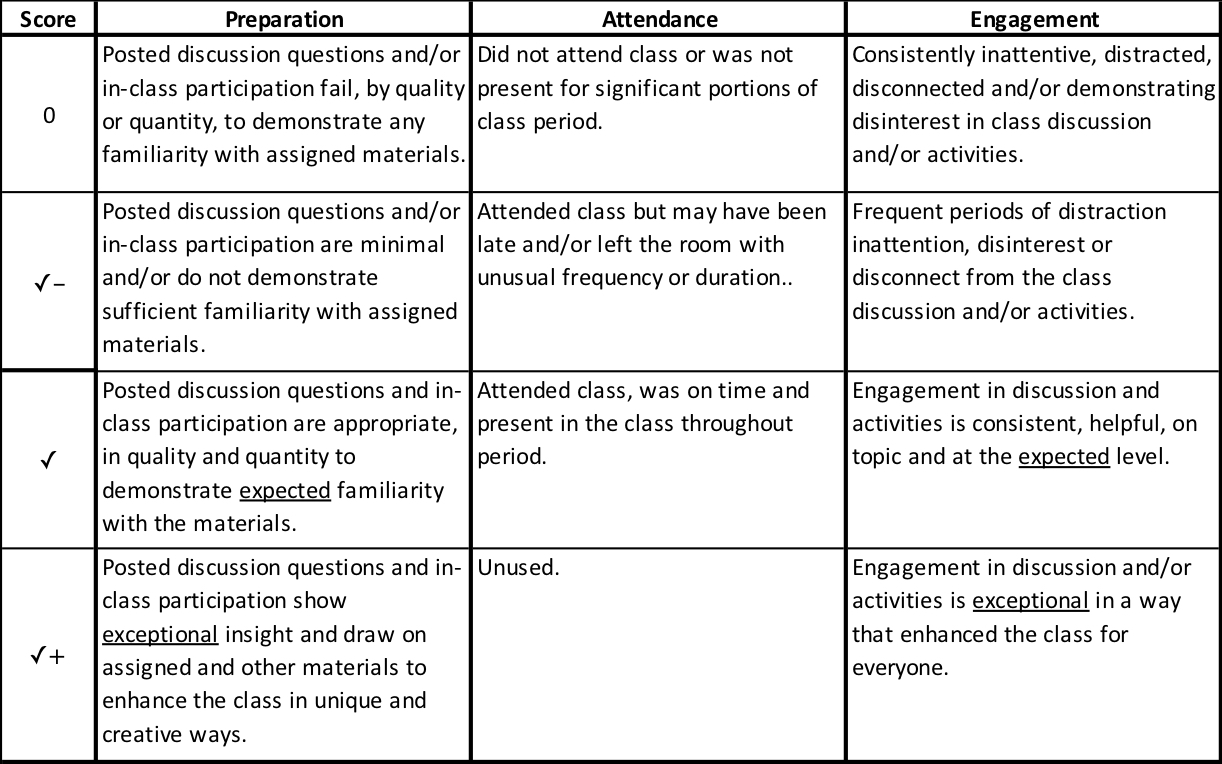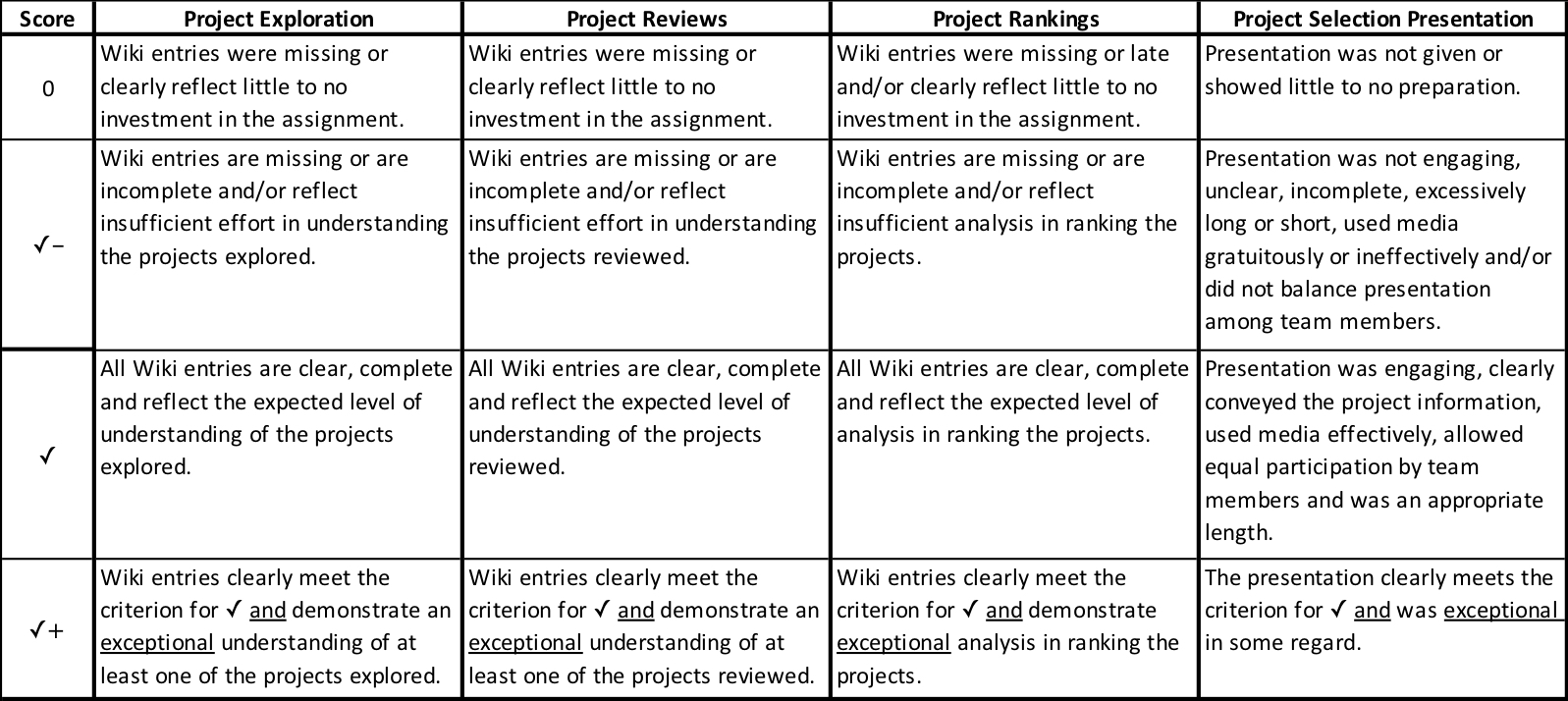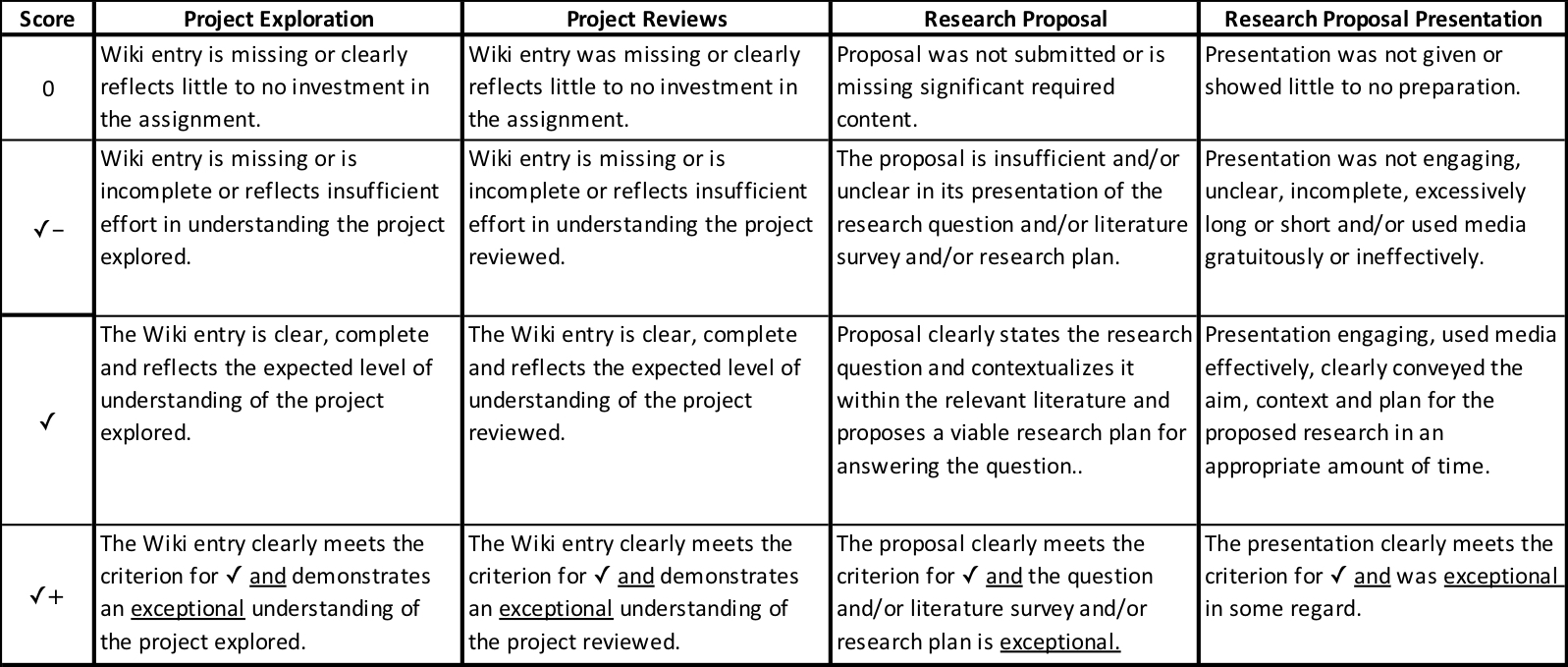PAE is assessed for each individual during each class period. Preparation includes completion of any reading, tutorials, exercises or activities assigned in the "Reading & Preparation" row of the "Class Detail". Attendance is your presence in class during our scheduled meetings. Engagement combines participation in discussion and activities with with a demonstrated investment both in the material and the betterment of the class for everyone.
PAE scores will be assigned according to the rubric below. The standard score in each category, and what you should generally expect to receive, is a ✓. Something exceptionally notable is required to move either up to a ✓+ or down to 0 or ✓-.

If you find PAE challenging, some good advice on increasing or improving class participation can be found at:
- Class Participation: Getting Started from the Winthrop University Academic Success Center.
- Ways to Improve Your Class Participation Experience: Suggestions from Students from the Bureau of Study Counsel in the Center for Academic and Personal Development at Harvard University.
Posts will typically be 200-400 words. You are given wide latitude for the content of your posts. The best posts will:
- be closely related to the reading/discussion
- be clear, focused and grammatically correct
- be written to be of interest to an audience beyond our course
- go beyond a mere summary of the reading/discussion
- include multimedia (images, audio, video, etc.) only as appropriate to enhance the content of the post. Be sure that if you use any external content that you are using it in a way that is allowed by its license.
I will assess blog posts at random during the semester. When you are selected to have your blog assessed, I will review all of your blog posts since the prior assessment using the rubric below. The standard score, and what you should generally expect to receive, is a ✓. Something exceptionally notable is required to move either up to a ✓+ or down to 0 or ✓-.

Note: Some language adapted from http://foss2serve.org/index.php/FOSS_Course_Syllabus#2._Methods_of_Assessment
If you find writing blog posts challenging, some good advice on writing effective blog entries can be found at:
- Effective Academic Blogging from the Writer's Web at the University of Richmond Writing Center.
- Blogs from The Writing Center at UNC-Chapel Hill.
- Writing a Blog workshop video from the Indiana University of Pennsylvania (IUP) Writing Center.
- There is no shortage of other advice, just google "How to write a blog" and find something that resonates with you and matches the goals of the course.
Tutorials and homework exercises will be assessed largely on completion and effort as documented by the associated Slack live-logs according to the rubric below. The standard score, and what you should generally expect to receive, is a ✓. Something exceptionally notable is required to move either up to a ✓+ or down to 0 or ✓-.


Additional assignment details will be posted on the course schedule.

- Slack Live-Logs (H/FOSS projects only / see below)
- Individual 5-15 (H/FOSS projects only / see below)
- Instructor's assessment of individual effectiveness (H/FOSS projects only)
- Team 5-15 or Honors 5-15 (see below)
- Project Checkpoint Presentation. This presentation should briefly reintroduce the project and then address: what has been accomplished since the prior checkpoint, what challenges have been overcome and how, what has been learned, what impediments are being faced currently and how they will be overcome. These presentations should also include live demonstrations that highlight accomplishments. The presentation should conclude with reflection on what has been learned in a broad context and what can be improved on going forward. Note that the presentation does not need to cover every detail in depth. Rather it should go into depth on some of the more interesting aspects and can just list the other aspects. Overall, it is important that the presentation tell a cohesive, interesting, understandable story about the work to the target audience.
- Instructor's assessment of the effectiveness of the project work. For honor's projects the thesis advisor will be consulted in making this assessment.
Project Checkpoints will be scored using the rubric below. The standard score, and what you should generally expect to receive, is a ✓. Something exceptionally notable is required to move either up to a ✓+ or down to 0 or ✓-.
